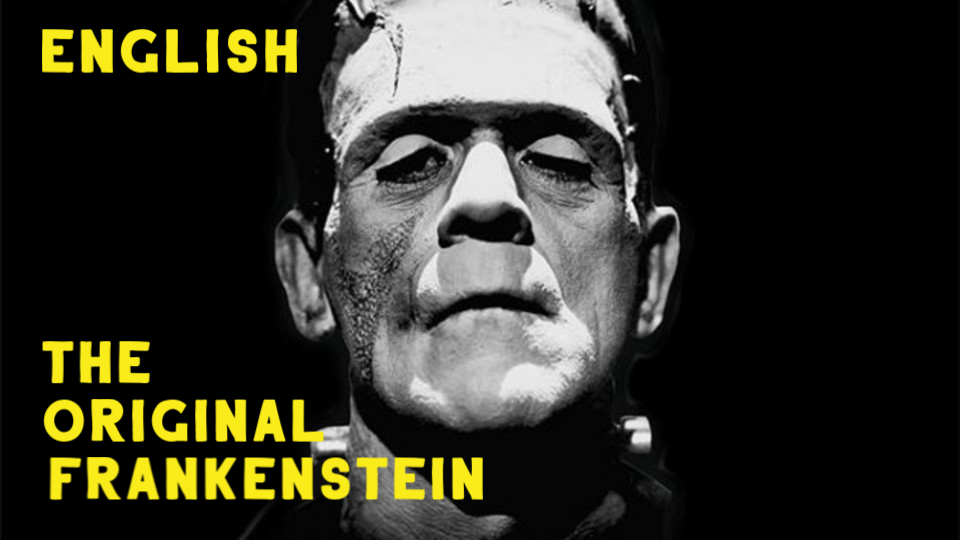English is a weird language. Any student who has had to memorize strange spelling anomalies or had to read aloud in class only to trip over a word with two different meanings and entirely different pronunciations can attest to this. For example, though they masquerade as the same word, lead (as in leader) and lead (as in the element) sound different when spoken. Taken to the extreme, sentences like Buffalo buffalo Buffalo buffalo buffalo buffalo Buffalo buffalo make complete grammatical sense. And, perhaps, consider that English is one of the only European languages in which nouns are not assigned gender.
There is a reason for these idiosyncrasies, though. The short answer is that English is a mutt of a language cobbled together from no less than four other languages. The long answer, however, requires a bit of history.
First off, if you have ever been in a science class, then you are probably familiar with words like photosynthesis or Yttrium. You may already know that both words have Latin roots, but what you may not be aware of is how English acquired these words. Back in ye olden days when the Romans ruled England, they brought their customs with them. You might guess that this includes their language, but that is not entirely true. Latin never really took off in England. What did, however, was Christianity, which hung around England long after the Romans left. Christianity is important, because back in ye olden days, Latin was the language of the Church. And since in the Medieval era, authors tended to be from the Church, Latin became an integral part of literature. Not only were the clergy writing books, but being the most educated people of the day, these men would go on to study science (or what counted as science at the time). Likewise, clergymen became architects, mathematicians, teachers, etc. So when these men wrote down their notes or lessons or instructions, it was in Latin. In the centuries following, men of science would study the notes of their predecessors, and to keep things consistent, they adopted Latin when naming things. This is where English gets words like herbivore, agriculture, aqueducts, multiply, etc.
Roman rule didnt last forever in Britain. In the early 400s C.E., Romans left the island forever, allowing other peoples to conquer it. Enter Jutes, Saxons, and Angles, who crossed the channel at some point in the 500s and quickly conquered the island of Britain. These peoples settled the land, married each other, and created a new culture called Anglo-Saxon. Their languages fused together into what we call Old-English. They didnt say they spoke Old-English; rather they spoke Anglish (referring to their homeland of the Angles). And where did these people speak Anglish? In Angleland of course, where they drank beer with their friends in their homes, after a hearty welcome. On Wednesday, Thursday, or Friday, an Anglo-Saxon would take care of his cows, sheep, and swines in the barn. All of these new words would become mainstays of the English language.
But that would not be the last time a conquering people would forever change English. In the late 700s C.E., a new group of people came to stay–Vikings. Much like the Anglo-Saxons, Vikings conquered areas of England and brought their culture with them. Of course, this includes their favorite pastimes. You know: slaughtering people by putting their axes in their victims skulls, outside of cottage windows. These words may sound ugly, but remember, the Vikings were a people of give and take, and at least they were happy with their husbands and sisters. With new people come new words that join the ranks of English vocabulary.
Lastly, in 1066, the Normans under William the Conqueror (well, you can guess) conquered England. You can probably predict what happens next. Except this time, it is a little different. William had just taken over a large kingdom and he needed people to run it. William didnt trust the local Anglo-Saxons as he had just conquered them, so he brought over his own countrymen from across the English Channel and made them his new nobles. Thus, the language of royalty and nobility was not Old-English. Old-English was for the peasants and dirty workers. No, these Frenchmen would govern the lower classes as their sovereigns. The nobles would judge them with evidence, so that justice could be delivered. The Normans would not talk in their homes like farmers. They would parle in their castles and would invite their fellow gentry to a cordial reception. And if it wasnt a bother, Norman guests would respond if they wanted beef or pork as the entree. When it came to government, the nobles formed councils and held parliament to discuss policies.
After a few centuries, the languages of French, Old-English, Old-Norse, and Latin blended together into the language that we today call English. It should be noted that the italicized words are included above in contemporary spelling, which might not be the same as it was centuries ago. For example, while the word home comes from Anglo-Saxon origins, it would have been pronounced ham. As time went on, vowels changed and so did their spelling. As became Os, and some vowels could be pronounced two different ways. So next time you fail a spelling bee or a English quiz be sure to blame the Normans, or the Vikings, or the Germans or the Romans.
Works Cited
Bowern, Claire. Where Did English Come from? - Claire Bowern. Youtube, TED-Ed, 16 July 2015, https://www.youtube.com/watch?v=YEaSxhcns7Y.
Gardoqui, Kate. How Did English Evolve? - Kate Gardoqui. Youtube, TED-Ed, 27 Nov. 2012, https://www.youtube.com/watch?v=kIzFz9T5rhI.
History of English (Combined). Youtube, OpenLearn from The Open University, 8 Nov. 2011, https://www.youtube.com/watch?v=H3r9bOkYW9s.
McAlpine, Fraser. 10 Words We Got from the Vikings. BBC America, 1 Jan. 1966, http://www.bbcamerica.com/anglophenia/2015/10/10-words-we-got-from-the-vikings.
McWhorter, John. English Is Not Normal. Aeon, Aeon, 13 Nov. 2015, https://aeon.co/essays/why-is-english-so-weirdly-different-from-other-languages.
Northbrook, Julian. Where Does the Word English Come from? Doing English, 25 May 2019, https://doingenglish.com/blog/where-does-the-word-english-come-from/.
The War That Changed the English Language - Mini-Wars #3. Youtube, Oversimplified, 24 May 2018, https://www.youtube.com/watch?v=Jl3K63Rbygw.
 Joe Baldwin, Alumni at UCTech
Joe Baldwin, Alumni at UCTech 
 A Controversial Fight Between Two Controversial Youtubers: Logan Paul vs KSI II
A Controversial Fight Between Two Controversial Youtubers: Logan Paul vs KSI II